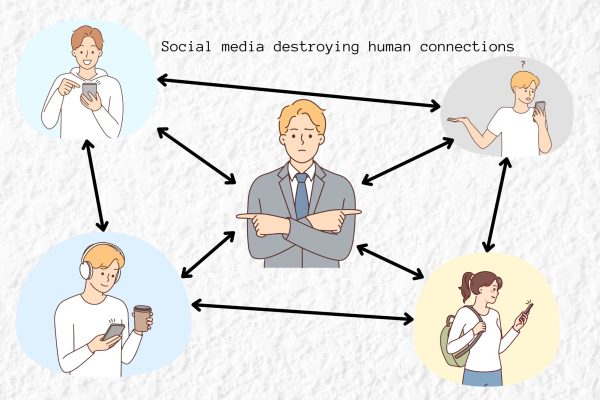Obstacles in Mental Health: Lose the “Suck It Up” Mentality
To reduce the stigma associated with seeking mental health treatment, consider a different approach
May 18, 2021
We’ve come a long way from old psychiatric asylums, and medically, we’ve gained a deeper understanding of mental health. Socially, the topic of mental health has become less stigmatized. According to a HealthPartners Institute survey conducted between 2017 and 2019, there has been a statistically significant decrease in stigma for mental illnesses. Available resources for mental health have also increased globally.
However, despite all these signs of progress, we still have far to go in order to reach universal mental health. Despite the increase in resources, according to the American Psychological Association, the majority of Americans suffering from mental health disorders still do not receive treatment. Struggling individuals often avoid addressing their mental health issues for an array of reasons, including a fear of judgment, the unavailability of treatment, a steadfast belief that nothing is wrong with them, and a discriminatory demeanor from others. Negative stigma towards mental health feeds almost all of these.
Stigma can be commonly found in phrases that embody a mindset centered around simply toughening up, like “bite the bullet, “get over it”, and “suck it up”. These come with a whole slew of under-recognized consequences, often making the person feel frustrated with themselves, hopeless, uncared for, isolated, and invalidated, all of which would lower their self esteem and worsen their mental health issues. They would feel abnormal for being unable to just get over their problems, and will start thinking that sharing their struggles with mental health is an unnecessary, dramatic inconvenience to someone else, which would only add to their fear of reaching out.
It’s relatively easy to see where this comes from. Most people who use these phrases believe that mental health disorders are something that individuals can power through and resolve on their own. They believe that saying these phrases is a form of tough love – hard to hear, but necessary. However, when translated into physiological terms, invalidating someone else’s mental illness is like a soccer coach telling a player with a broken leg to just get up and play instead of seeking medical attention. Of course, it’s widely understood that in a situation like this, the leg won’t just heal when a player pushes on and attempts to play on it. Urging and pushing the player to do so would just be increasingly painful and delay or complicate recovery. Likewise, mental illnesses aren’t just something a person can just stand up and recover from. These conditions that affect thinking, feeling, behavior, and mood aren’t something people have control over, and can be caused by anything ranging from genetic predispositions and imbalanced chemicals to emotional trauma. Mental illnesses do not reflect character or willpower at all. Affected individuals need support and professional help, not to be told to just suck it up. This shallow, stigma-spawned mindset doesn’t work, and it has to go.
Instead, people need to become more mindful of other people’s emotions and validate how they feel. A solid first step in supporting someone acknowledging someone else’s struggle and showing that you care, which makes them feel heard and shows them that you’re attempting to understand their pain. There is no script for this, but some general examples are “That sounds difficult, is there anything I can do to help?”, or “I’m so sorry that you’re going through this”. This acceptance also helps them come to terms with their own mental health issues. Another meaningful way to support someone who has trusted you enough to push past their fear of vulnerability and tell you their problems is by being appreciative when they open up to you. Something as simple as “I’m happy that you’re sharing this with me and I’m here to listen” can give the person a sense of safety and diminish their fear of going to you or others for support. Most people who struggle with mental illnesses need professional help to recover, and this support from friends and family encourages them to seek treatment. When you do listen, show patience and give them a non judgemental space. Positive encouragement can also help someone who is dealing with a mental illness. Instead of saying “suck it up”, tell them that they matter, share the things that you love about them, and tell them you believe in them.















Lavar Munogerwa • May 18, 2021 at 9:35 pm
good article